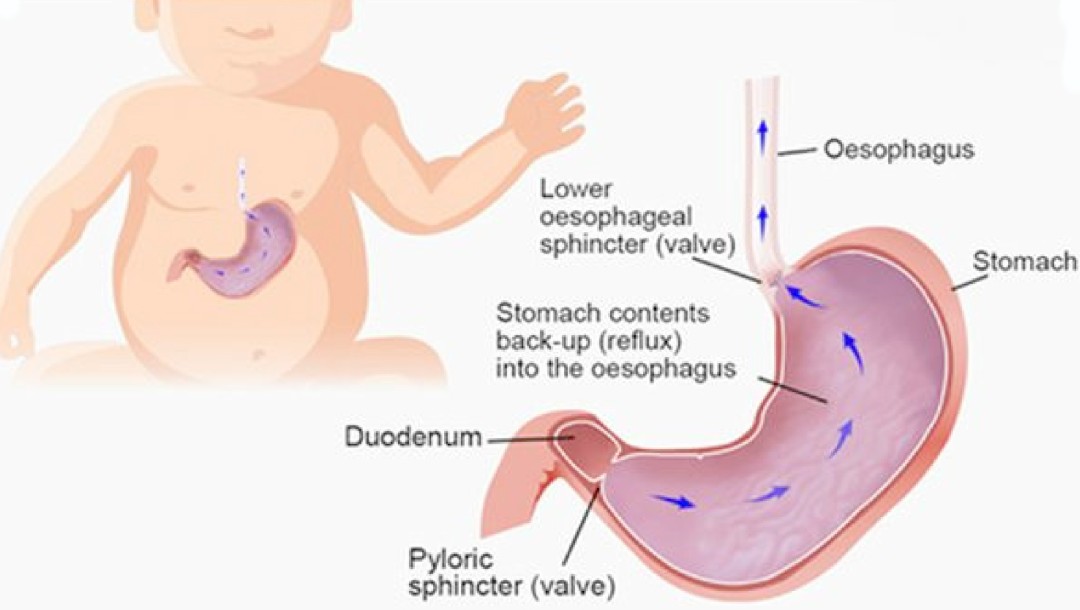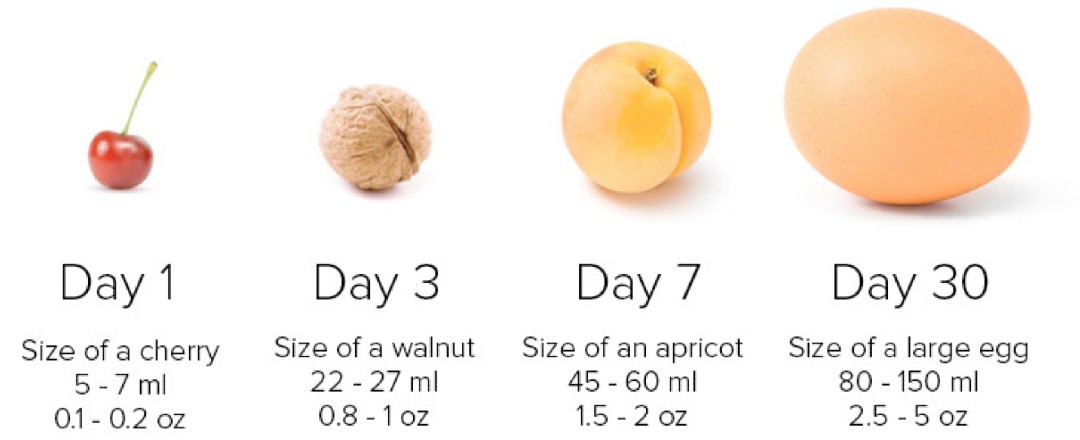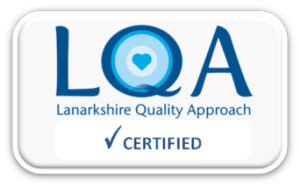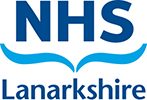Infant Reflux
Information for patients
NHS Lanarkshire Nutrition and Dietetic Department
PIL.REFLUX.04808.L
Background
Gastro-oesophageal reflux (GOR) known as reflux and regurgitation is a normal physiological process that happens after feeding in healthy infants.
What is reflux?
Reflux, is when the stomach’s contents pass back into the oesophagus (food pipe). Sometimes the refluxed contents can enter the mouth in infants, which is then ejected from the mouth as non-forceful regurgitation. It is particularly common in babies, with at least 40% of infants showing symptoms during infancy. If symptoms are mild, then it is normally left untreated. Symptoms normally improve by 6-8 months; however, it is not unusual for symptoms to continue in a well child up to 18 months.

Infants and Reflux
Infants take large volumes relative to their body weight to allow for growing and rapid development.
They require high calorific intake to meet these demands when growing. However, their stomachs’ are small, which is then stretched to accommodate larger volumes. As infants have a short oesophagus it is easier for the stomach contents to flow back and out the mouth.
Size of baby’s stomach

In a well infant this is known as posseting, spitting-up or vomiting. It is very common affecting at least 40% of infants. Symptoms usually begin before the infant is eight weeks and can be as frequent as six or more episodes of vomiting per day. Over time this becomes less frequent and usually stops around one year old. As this is a normal occurrence it is not usually treated.
Infants may cry excessively and appear to be in discomfort, however this may not be linked to reflux. There could be other explanations such as:
- Constipation – No bowel movement for three days or hard lumps when passed
- Passing wind
- Swallowing too much air during feeds
- Sensitivity to cow’s milk protein (See health visitor)
How to manage reflux?
There are a range of methods to help treat reflux without medical intervention.
- Reducing volumes with frequent feeds (smaller amounts of formula more frequently)
- Keeping your baby upright after feeds for at least 30 mins
- Ensuring feeding time is quiet and calm
- Don’t bounce your baby after feeds to allow milk to settle
- Ensure teat is a slow flow to prevent choking or gulping too quickly
- Discuss with your health visitor if breastfeeding to have an assessment carried out
- Do not use any thickeners without prior discussion with
- GP or health visitor
- Try using sling supplied in the baby box
If your baby has signs of painful symptoms please speak to your GP or health visitor for further advice and support.
Pub. date: March 2021
Review date: March 2023
Issue No: 01
Reference: PIL.REFLUX.04808.L
If you need this information in another language or format, please e-mail:





